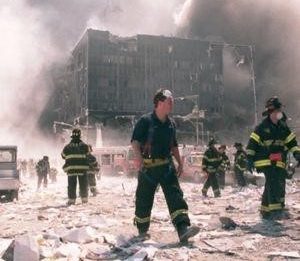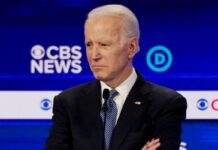As America marks the 18th anniversary of the 9/11 attacks that killed 2,997 and injured more than 6,000 people, the ongoing deathly effects of these acts of terrorism continue to take lives.
Since September 11, 2001 when 23 New York Police Department (NYPD) officers died in the collapse of the World Trade Center, 9/11 remains the single biggest killer of officers in the nation’s largest police force. In fact, 241 members of the NYPD officers have now died of 9/11-related illnesses due to exposure from the dust and rubble. Last year alone, 15 officers died of cancer and other illnesses contracted during their service on or immediately after Sept. 11, 2001.
That means that more than 10 times the number of NYPD police officers have died in the 18 years since 9/11 as were killed in the terror attack on the World Trade Center itself.
The long-term effects of the 9/11 terror attacks have been just as devastating for New York City (FDNY) firefighters. To date, 202 FDNY members have died of illnesses related to their service on Sept. 11 or in the immediate aftermath, 22 of those since last year. In the attack itself, 343 firefighters died.
While the most common killer has been cancer, new research suggests that cardiovascular disease is markedly higher in responders who were first on the scene as well as those who spent protracted periods of time on the pile.
According to a new study published in the medical journal JAMA Network Open by Albert Einstein College of Medicine at Yeshiva University, FDNY firefighters who were first on the scene when the air-borne dust was thickest, have a 44 percent increased risk of developing cardiovascular disease (CVD) than firefighters who arrived the next day. The length of time that firefighters worked at the disaster site, either more or less than six months, was also linked to higher rates of CVD. Those who worked on the pile for six months or more were 30 percent more likely to have experienced a heart attack or stroke.
“The increase in risk was significant, even taking into account known CVD risk factors such as age, hypertension, elevated cholesterol, diabetes, and smoking,” said study leader David J. Prezant, M.D., a professor of medicine at Einstein, a pulmonary disease specialist at Montefiore, and chief medical officer of the FDNY.
In order to help compensate ill first responders and other survivors, as well as the families of those who died, President Trump recently signed into law the Permanent Authorization of the 9/11 Victim Compensation Fund Act. This fund helps provide compensation to anyone who suffered physical harm or was killed as a result of the terrorist-related aircraft crashes or the debris removal efforts that took place in the immediate aftermath of those attacks. Without reauthorization, the funding was set to run out in December 2020.
The New York City Fire Department has honored the firefighters who died of 9/11-related illnesses by putting their names on the FDNY World Trade Center Memorial Wall in Brooklyn.
“This solemn wall is a poignant and permanent reminder of the sacrifice of all that responded on September 11th and toiled for weeks and months at the World Trade Center searching for the innocent lives taken that day,” said Fire Commissioner Daniel A. Nigro. “Because of their dedication and bravery, each year the already staggering loss suffered by the FDNY continues to grow as illnesses claimed the lives of those who so bravely served our city.”
Liberty Counsel’s Founder and Chairman Mat Staver, “Today we remember the dedication and bravery of those first responders who sacrificed their lives to save others on September 11, 2001. That horrible terrorist attack took many innocent lives that day. First responders make sacrifices every day for each of us to provide safety and security. We often take them for granted. When you meet first responders, remember to thank them,” said Staver.
















